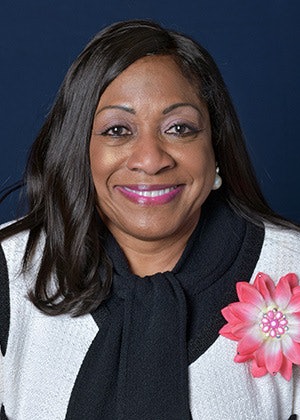In the United States, education has long been considered a great equalizer — or, as Horace Mann put it, “the balance wheel of the social machinery.” While it is indeed a vital lever for social and economic mobility, the machinery, unfortunately, comes with a design flaw. And it is rife with inequity.
This flaw is perhaps most evident in times of economic and social upheaval, as long-standing inequities are exacerbated and deepened. In the years following the Great Recession, the unemployment rate for college graduates between the ages of 22 and 27 fell to 5.6 percent. But for young black graduates, the rate was as high as 12.4 percent. Even as the recovery continued, the unemployment rate of young black graduates remained twice as high as white graduates. Now, we are once again living through a painful moment of upheaval, as the COVID-19 pandemic disproportionately impacts Black and Latinx workers. Latinx unemployment rose to nearly 19 percent by April, while unemployment among Black workers inched toward 17 percent, both far outpacing white unemployment rates.
 Dr. Jane Gates
Dr. Jane GatesHigher education has a responsibility to bridge this gap. That’s why, when Connecticut State Colleges & Universities recently embarked on an intensive review of its programs, we knew preparing students for employability would be a key component of our quality assurance work. As the process dovetailed into the pandemic, we only grew more certain that any attempt to create a more equitable system of higher education must consider whether all its graduates are ready to find and sustain meaningful employment.
Institutions have long struggled to connect the education they provide students with the evolving expectations of employers. Too often, what students do after they graduate is treated as an afterthought. Most students rarely visit their career services office, and those who do so report that the services — which often exist on the tangential outskirts of a student’s education — are not very helpful. While 88 percent of freshmen say they primarily choose to attend college to find a good job, just 27 percent of graduating seniors in the last decade received a good job offer prior to graduation. In a survey conducted by Strada Education Network and Gallup, only one-quarter of working Americans with college experience said they strongly believe that their education was relevant to their work and daily life.
In recent years, some organizations and institutions have begun to address this challenge, however, creating new frameworks and metrics to truly measure employability. Earlier this year, we received a grant from Lumina Foundation to evaluate our academic programs to improve student results and close equity gaps. A vital part of this work has been focused on the employability of CSCU graduates. Eight of the 17 CSCU institutions have been participating in an employability self-assessment, using a field-tested framework developed by the Quality Assurance Commons (QA Commons).
Known as the Employability Self-Assessment (ESA) Framework, this unique and comprehensive process brings together faculty, employers, career services, and institutional research with the goal of improving completion and ensuring students find meaningful employment. It helps our programs create a foundation for demonstrating just how effective they are at preparing students for today’s workplace.
The framework has increased faculty and staff awareness of the importance of employability, as well as what best practices should be used. We are starting to see faculty more fully consider employability outcomes in their curricular development, with career services moving from the periphery to become a true partner in the development of our students. They are learning how embedding employability into our curricula does not come at the expense of a well-rounded liberal arts education. Rather, it helps us draw clearer connections between what students are learning and what skills employers demand.
Indeed, this is especially important among liberal arts programs, which are rife with the kinds of essential skills students must develop to compete in a knowledge-based economy. Liberal arts and employability should be tightly aligned, and we are now working with our liberal arts programs to identify career pathways for their graduates.
Data is a key element of this process. We must understand not only which kinds of programs are turning out the most prepared graduates but who enters these programs in the first place. This is where equity first comes into play, as we examine what hurdles are preventing some students from even stepping foot on the pathways that can lead to a meaningful career. At CSCU, we are now reexamining our placement policies, including testing requirements, to determine how these barriers can be broken down to create a more equitable experience for our students.
These are the kinds of questions a program review like the ESA Framework can force an institution to consider. Early data suggests some encouraging results from our efforts, with faculty starting to think more deeply about the futures and careers of their students. Nearly 70 percent of our faculty say they agree it is their responsibility to ensure students are prepared with the employability skills required in the world of work.
There is much more work to do, and we invite other institutions to join us on this introspective journey. It won’t be easy. We will have to grapple with some uncomfortable truths and experience just as uncomfortable growing pains. But in time, we will begin to create a more fair and equal system of higher education that helps prepare all students for success.
Dr. Jane Gates is the interim president at Connecticut State Colleges and Universities.


















